.png)
On 6 July 2021, AFSIS Secretariat and Center for Agricultural Statistics (CAS), Department of Planning and Finance (DoPF), Ministry of Agriculture and Forestry (MAF), Lao PDR had conducted the virtual Inception Workshop on Project for Supporting Agricultural Survey on Promoting Sustainable Agriculture (SAS-PSA) in Lao PDR.
The main purposes of this Inception Workshop are to inform the objective and the future work plan of the SAS-PSA project, discuss the on-going implementations of the SAS-PSA in Lao PDR, and to get suggestions from all the stakeholders in the Ministry of Agriculture and Forestry of Lao PDR.
The session was opened by the warm welcome speech of Ms. Vivanh Souvannamethy, Director of CAS, and followed by the notable opening remarks by Dr. Waraporn Saelee, AFSIS Manager.
During the meeting, the delegates were informed with the background of the SAS-PSA Project, along with the brief Methodogy of SDG Indicator 2.4.1. by Mr. NIIMI Tomohiro, the Japanese Expert.
Afterward, activities and work plan of the SAS-PSA Project in Lao PDR were presented by Mr. Sengphachan Khounthikoummane, National Consultant of CAS. The Meeting was informed that 1) The SAS-PSA Project in Lao PDR will be starting from 1 May 2021 to 31 March 2022 2) Household samples are 220 households from 10 districts in Khammuane province 3) The manual and questionnaires have now been updated in Lao language 4) The CAPI, the survey solution programme, will be used for interview farmers.
Lastly, Ms. Vivanh Souvannamethy, Director of CAS, DoPF, MAF of Lao PDR expressed the sincere gratitude to the AFSIS Secretariat and MAFF, Japan for the implementation of the SAS-PSA Project in Lao PDR as it is the fundamental step to improve agricultural statistics and support SDG indicator 2.4.1. in the region.
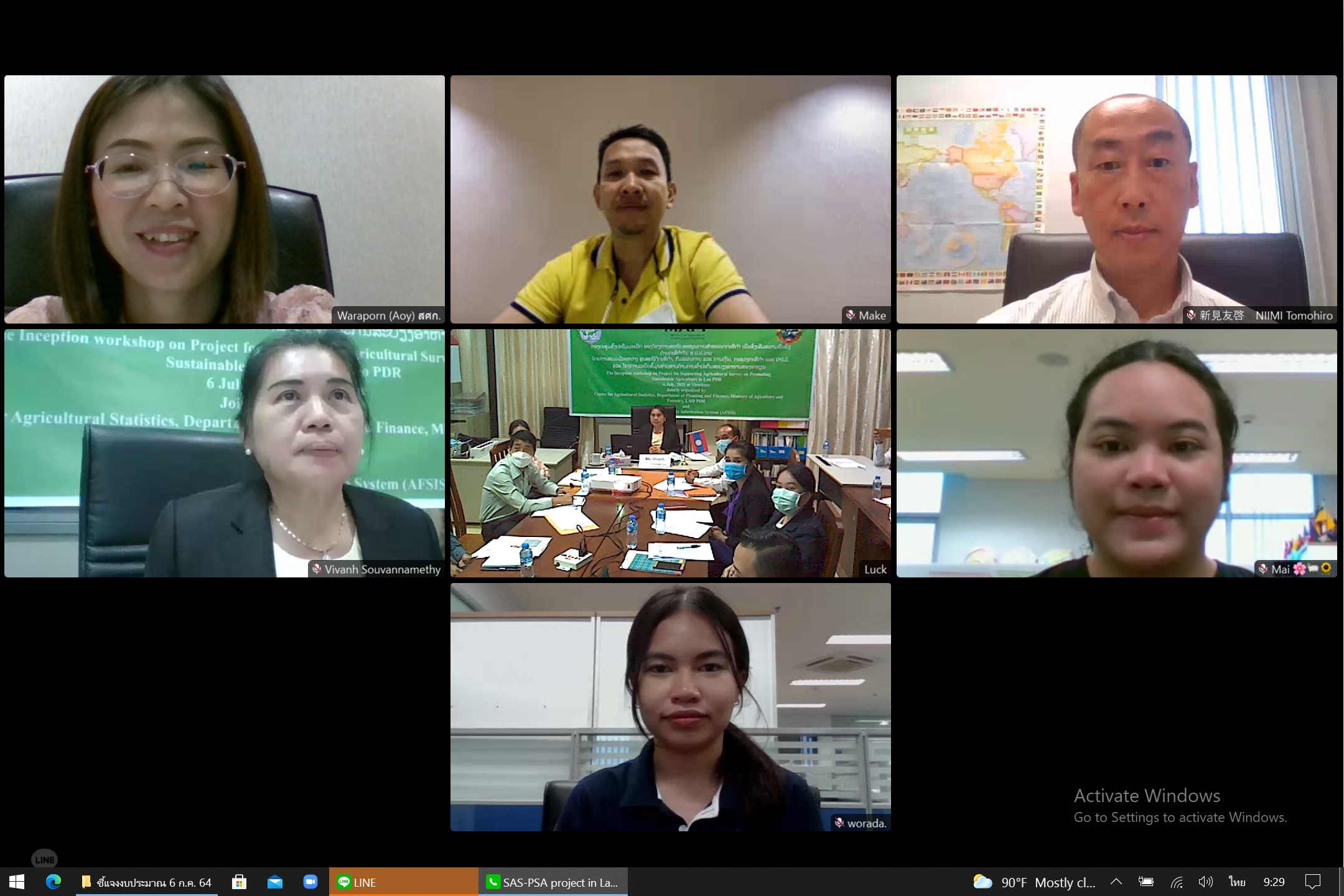
.png)
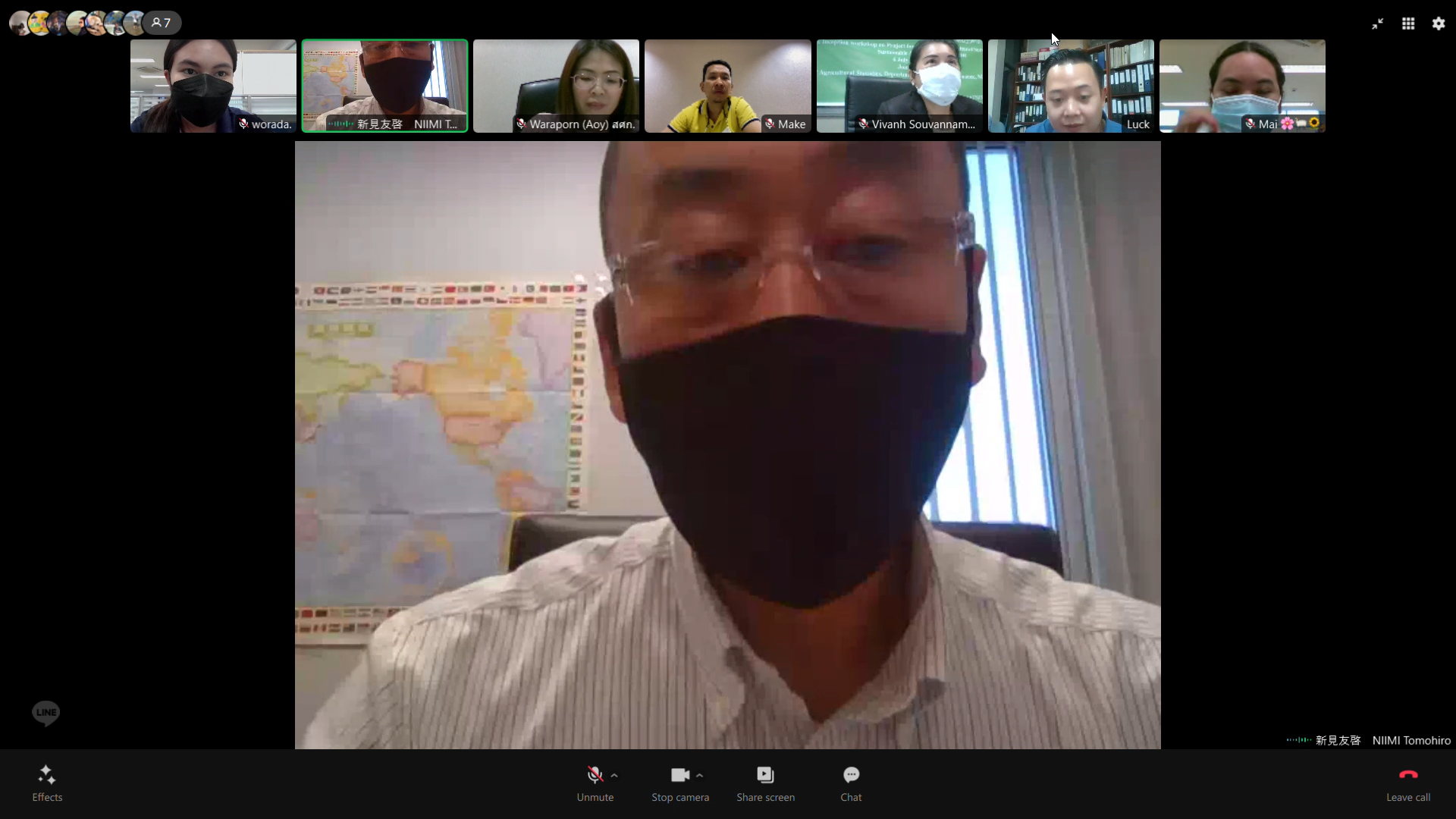
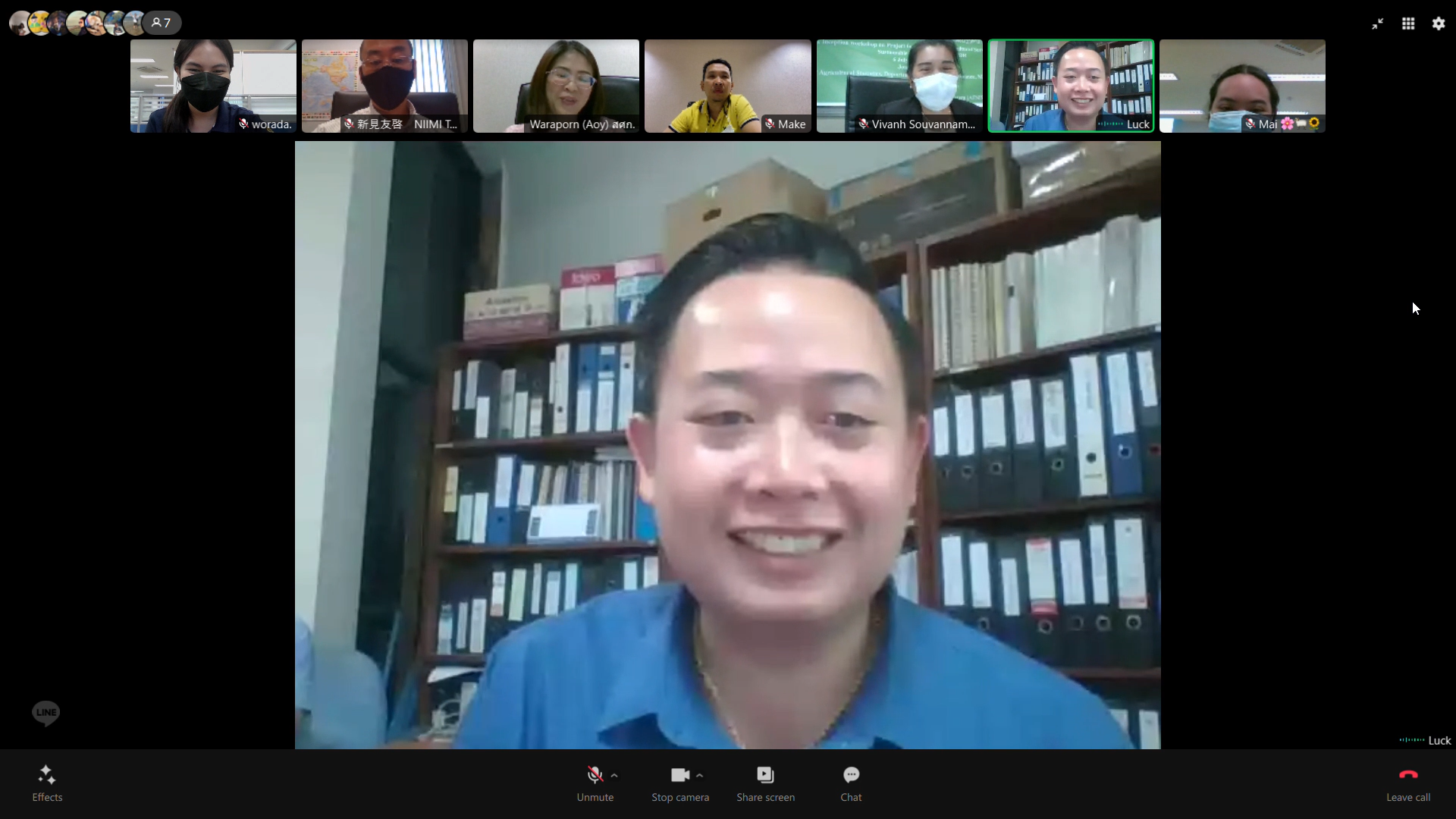
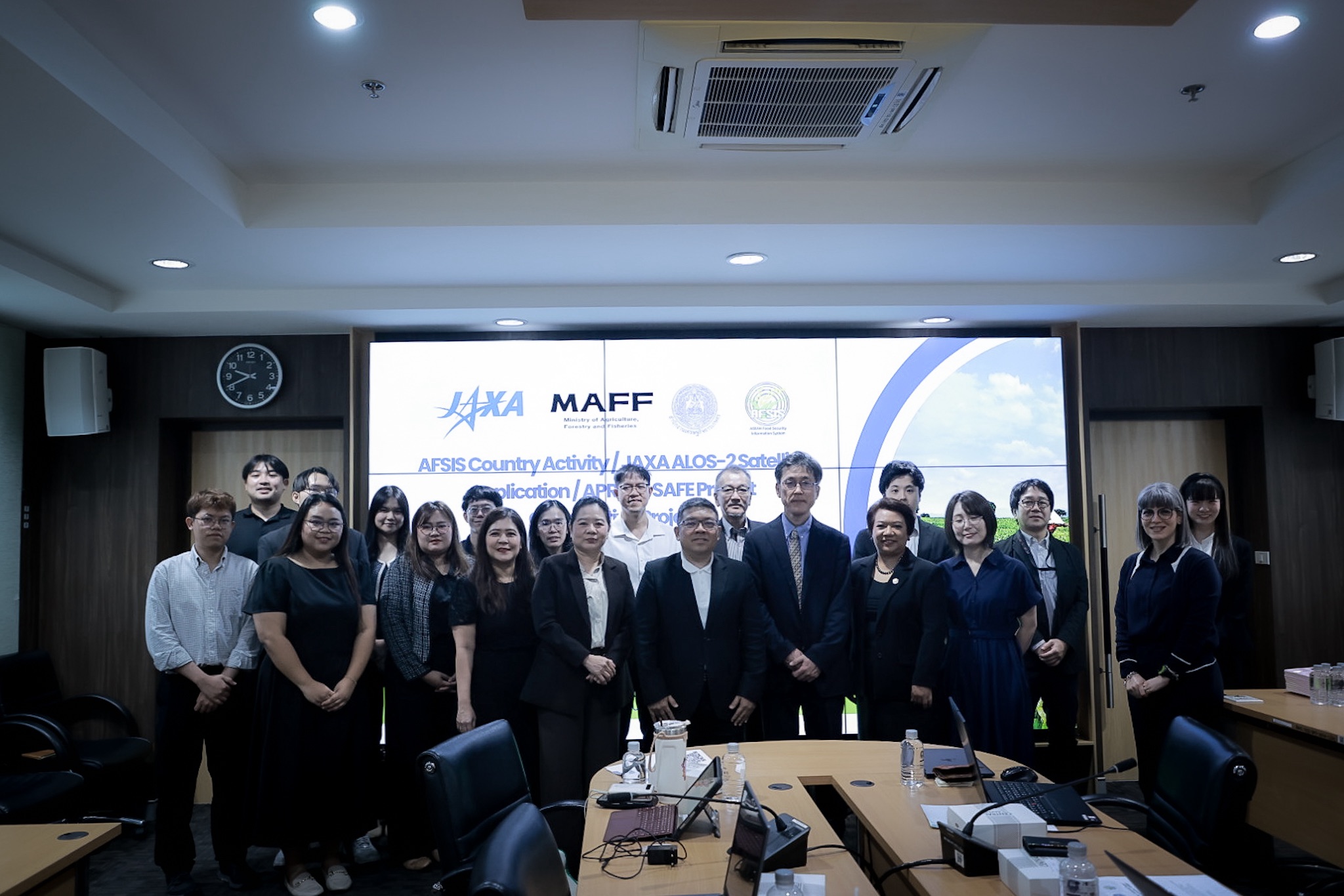
On 12-13 February 2026, the AFSIS Secretariat, in collaboration with the Japan Aerospace Exploration Agency (JAXA), the Remote Sensing Technology Center of Japan (RESTEC), Ministry of Agriculture, Forestry and Fisheries (MAFF) Japan and the Office of Agricultural Economics (OAE), Ministry of Agriculture Cooperatives (MOAC), conducted a workshop conducted a workshop The Promoting Rice Planted Area and Production Estimation Using INAHOR and Space-based Technologies in Thailand at the Meeting Room 2, Innovation Building, 3rd FL, Office of Agricultural Economics (OAE)
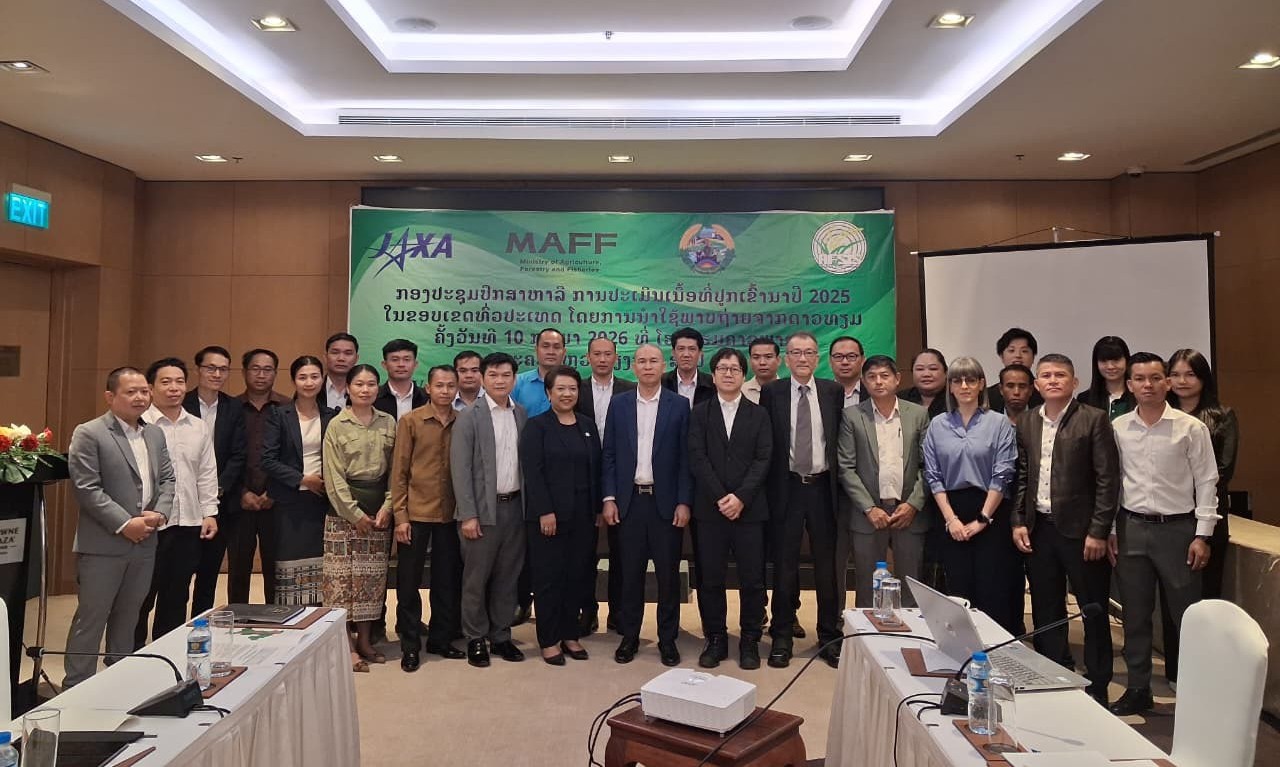
The In-Country Workshop on Promoting Rice Planted Area and Production Estimation Using Space-based Technologies in Lao PDR was jointly organized by AFSIS Secretariat, JAXA, MAFF Japan, and MAE Lao PDR under the AFSIS-GIS and SAFE projects. The event was held in Vientiane with hands-on training on 9 February 2026 and a workshop on 10 February 2026.
.jpg)
On 13–15 January 2026, the Office of Agricultural Economics (OAE), Thailand, in collaboration with the Ministry of Agriculture, Forestry and Fisheries (MAFF), Japan, and the AFSIS Secretariat, conducted the 1st Meeting of Japan–Thailand Expert Dialogue on Agricultural Statistics. The meeting was held at the Office of Agricultural Economics and field survey activities in Chonburi Province.

On 3–4 December 2025, the ASEAN Food Security Information System (AFSIS) Secretariat participated in the ASEAN Plus Three Emergency Rice Reserve (APTERR) Table Top Exercise (TTX) held in Bandar Seri Begawan, Brunei Darussalam.